During the month of Ramadan, the Goût du Bled restaurant in Montreal prepares and distributes 1,200 meals a day to local Muslims who are in need.
Meryem Zemouri’s husband owns the restaurant, but during Ramadan she’s in charge, co-ordinating dozens of volunteers in different shifts as the kitchen rolls 16 hours a day.
“It was my idea since I was very young. It was a dream for me that is now coming true,” Zemouri said, when CBC visited the restaurant Wednesday.
Every afternoon at around 4:30, people line up around the block to pick up the meals packed up in bags to take home. Almost all are Muslims who’ve been fasting during the day.
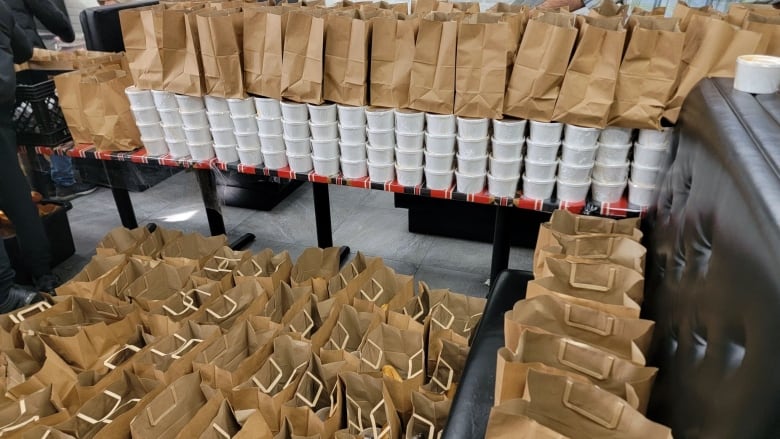
“Our religion says that during the holy month of Ramadan, you have to do a lot of good things,” said Zemouri. “You have to help others.”
“In the evening, there are people in need who cannot afford to eat well, so we offer these complete meals.”
Frenzy of activity
Zemouri lives in the on-island suburb of Côte Saint-Luc with her husband and four children, but during Ramadan she stays in an apartment near the restaurant in Saint-Léonard so she can be close to the action.
When CBC visited, there were four huge pots of vegetable soup simmering in the cramped and sweltering basement kitchen, flavoured with cinnamon, mint and coriander.
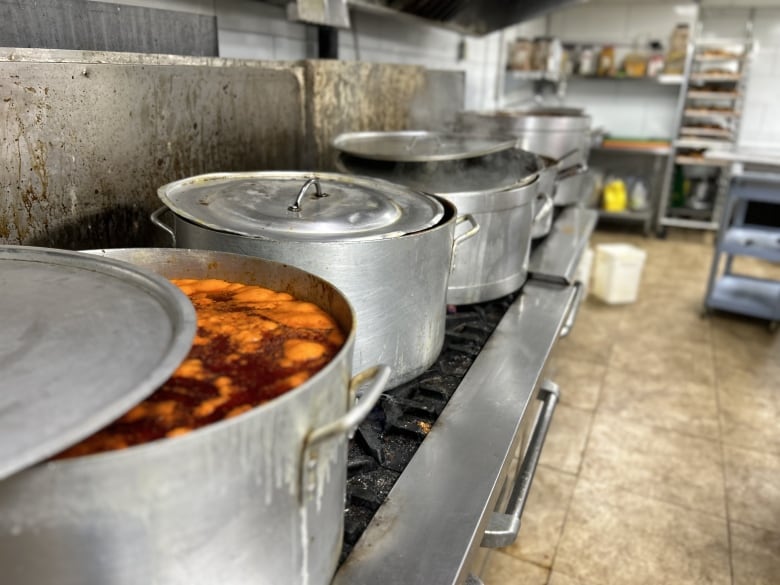
Another four big pots were filled with potatoes and chickpeas, to be served with hundreds of pieces of fried chicken already prepared.
In one corner, volunteers were preparing hundreds of rolls called boureks made with ground meat, cheese and parsley to go with the soup.
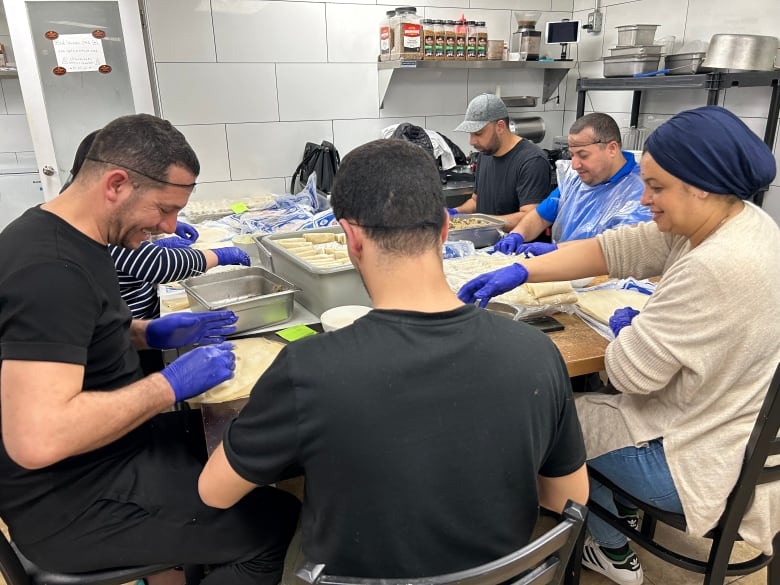
In another corner, four other volunteers were peeling potatoes and chopping onions. Upstairs in the dining room, hundreds of salads were being packed into plastic containers, while a volunteer unpacked fresh dates imported from Algeria.

Zemouri shows up at 7:00 a.m. every day to begin cooking with her first shift of volunteers. By mid-afternoon, more volunteers show up to start packing the food. This is Zemouri’s favourite time of day.
Even though exhausted volunteers — who are all fasting without food or water — have been working hard for hours, the atmosphere is festive.
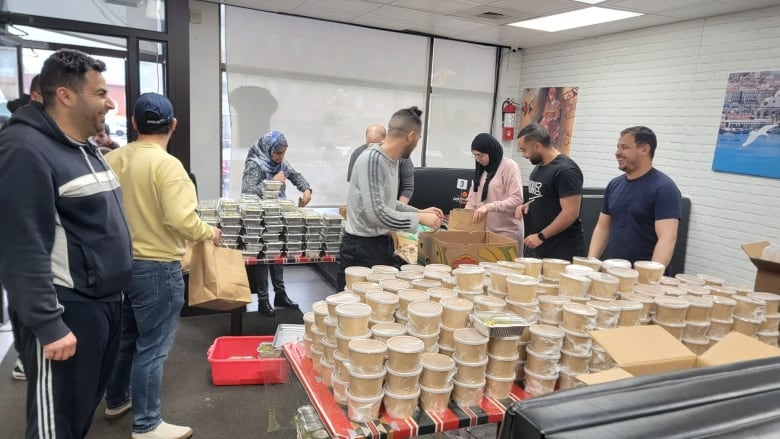
“We laugh. We dance. We sing. God gives us strength. It’s magnificent,” said Zemouri.
All the meals are usually distributed by about 6:30 p.m..
Zemouri heads home for dinner with her own family, but then she’s back at the restaurant as a third crew of volunteers arrives to start prepping ingredients for the next day. She heads home around 3:00 a.m. for a few hours sleep before starting all over again.
“Often when I’m tired, I stand in front of the window and watch the people who come to get this food. That gives me strength for the next day, to do even more,” she said.
Community effort
Zemouri said most of the people who come for the food are recent immigrants or asylum seekers from Algeria, Morocco, Tunisia and Egypt. (No one is turned away, and Zemouri says sometimes curious non-Muslims show up.)
Often these immigrants have to wait months for work permits and struggle to get by. It’s the same for some of the volunteers in the kitchen. With no work, they have little to do during the day, so they help out.
Zemouri said the people who come for the meals are always grateful.
“Even their parents who are in other countries sometimes send me messages saying: ‘thank you for feeding our children who are alone there,’ and that really touches me,” she said.
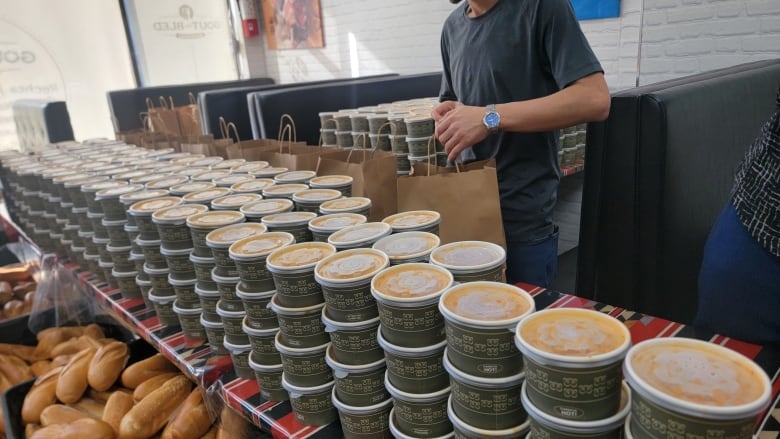
The ingredients are mostly donated or offered at a reduced rate by a few local businesses. And people from the community drop by with bags of groceries or cash. There’s no corporate sponsorship, no support from governments or community groups.
“It’s a source of pride for our community to do this. It’s very important and everyone appreciates it. That’s what the Muslim community is,” said Zemouri.
And while it truly is a group effort, Zemouri is the driving force: part matriarch, part four-star general. Without her singular vision, this likely wouldn’t get done.
“Nothing will stop me. As long as I can, I’m sure I’ll continue,” she said.



